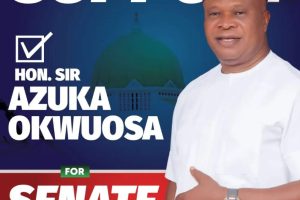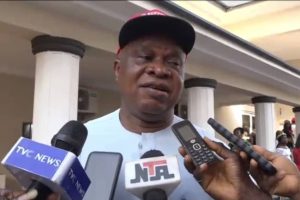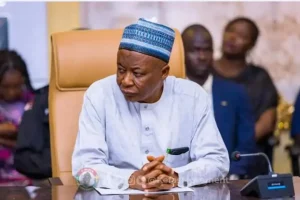
The Catholic Archbishop of Sokoto Diocese, Matthew Kukah, recently remarked that Nigeria’s past and present leaders, including President Bola Tinubu and his predecessor Muhammadu Buhari, entered office without fully preparing for the responsibilities of leadership.
According to Kukah, these leaders did not ascend to power through careful planning or foresight but found themselves in leadership positions by happenstance.
Kukah made these comments during a keynote address on Sunday at the official unveiling of Start-Rite School’s new building and the 4th Amaka Ndoma-Egba Memorial Lecture in Abuja. He expressed his deep concern over the state of leadership in Nigeria, particularly focusing on the knowledge gap he believes exists among the country’s leaders.
In his speech, the clergyman argued that the true deficiency in Nigerian leadership is the lack of adequate knowledge, which he views as essential for effective governance. He pointed out that many of Nigeria’s past leaders did not expect to lead the country and were thrust into power by unforeseen circumstances, which he believes has contributed to the ongoing challenges in governance.
“If you look at the history of leadership in Nigeria, you will find that almost every leader who has assumed office did so as a result of some accident or unexpected event,” Kukah stated. He noted that even President Tinubu, who claimed to be prepared for the role, has faced difficulties in leading the nation. “President Tinubu, despite his assertion of preparedness, is still grappling with the complexities of leadership. We are still struggling to stabilize the nation after he succeeded Buhari, who by then had already exhausted his resolve to continue in office,” Kukah observed.
Kukah further discussed the succession of Nigeria’s leaders, highlighting the unplanned nature of their political ascensions. He explained that former President Goodluck Jonathan, who unexpectedly found himself in office after the death of President Umaru Musa Yar’Adua, never envisioned a presidential career, especially after a long tenure as deputy governor. Jonathan succeeded Yar’Adua, who had initially intended to return to academia after his governorship role.
Yar’Adua himself took office after the sudden departure of former President Olusegun Obasanjo, who had been unexpectedly released from prison and thrust into power following the death of General Sani Abacha. Abacha, in turn, had succeeded Ernest Shonekan, a businessman who had been appointed Head of State by the military and had not planned for a political career.
Kukah reflected on the larger trend of political transitions in Nigeria, noting that many of the country’s leaders were never fully prepared for their roles. He argued that while these circumstances have defined Nigeria’s leadership history, the underlying issue remains a lack of deep understanding of the environment in which these leaders operate.
“The fundamental problem we face in governance today is knowledge. Leaders must have a profound understanding of the nation, its people, and its challenges. Unfortunately, this is often absent,” Kukah emphasized. He stressed that despite the world evolving rapidly, the expectations and requirements for effective leadership in Nigeria have remained stagnant, creating a significant disconnect.
The archbishop concluded by urging a reevaluation of the leadership approach in the country, stressing that leadership must be about more than just occupying a position—it must involve a genuine commitment to understanding and addressing the nation’s needs in a knowledgeable and strategic manner.





